Subscribe
Sign in
Your brain-altering screen addiction explained. With ancient memes.

Share On
Yes, your screen time is really that bad.
Platon Levitski is a consumer tech builder and founder of Ubiq, a geosocial platform.
Before we look at how screen addiction works and what it’s doing to our brains, let’s see how bad your addiction is. Open your phone Settings and navigate to Battery to see the cold hard truth:
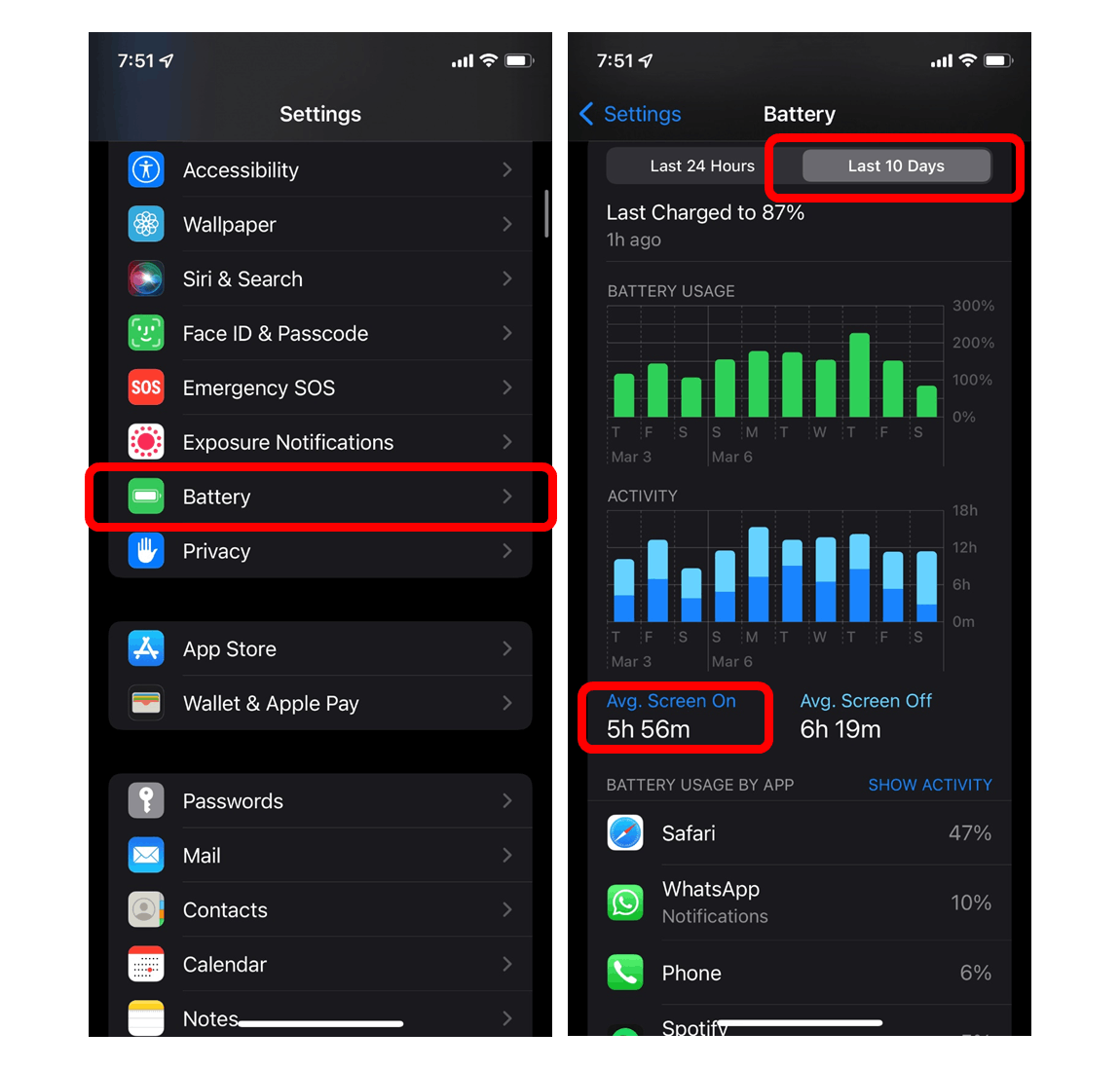
iOS usage (not a meme)
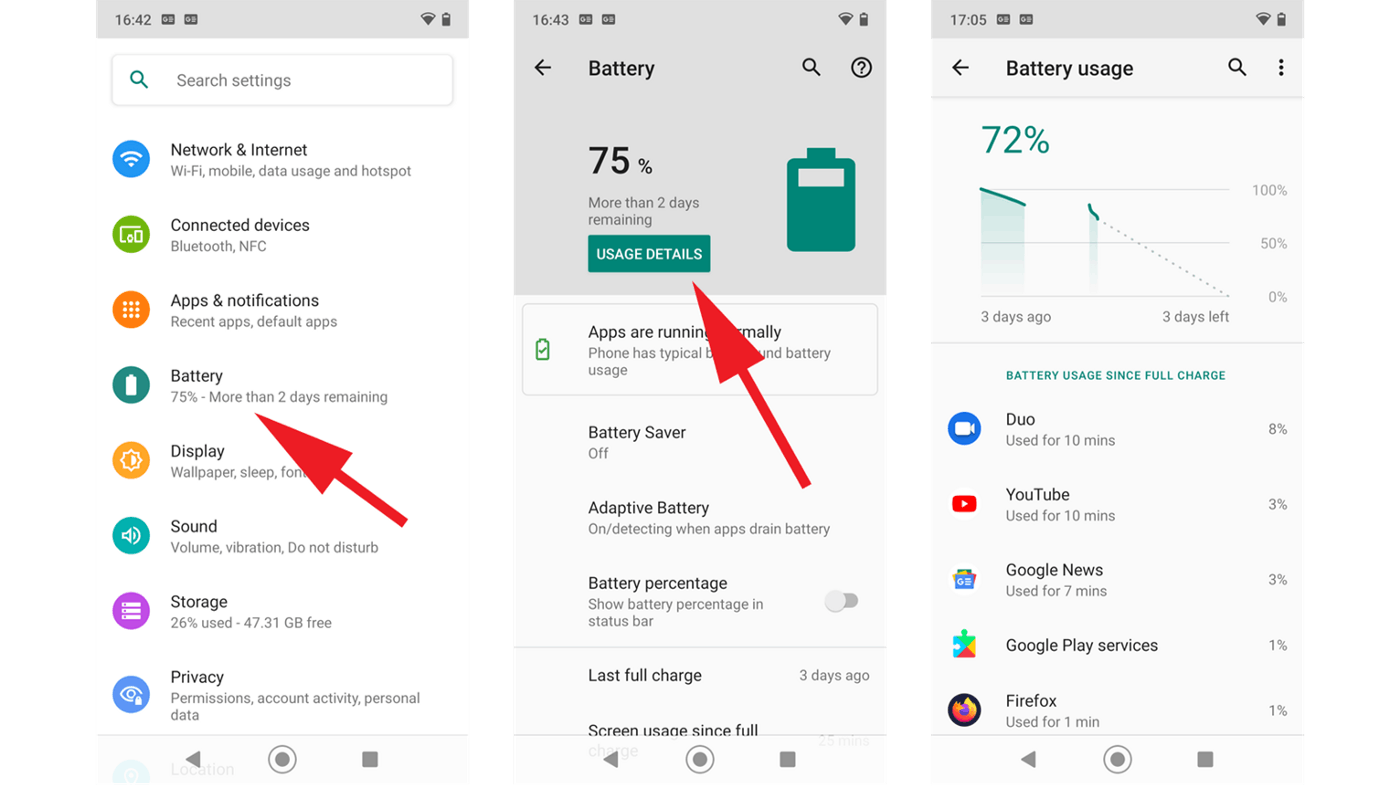
Android usage (not a meme)
What’s your number?
Maybe you’re thinking “woot I’m only at 3 hours, not so bad”. But that’s nearly 20% of your waking hours, 20+ hours per week, or a whopping 43 full days per year that you idle away in front of your screen. In fact, Americans spend nearly 4 hours a day on mobile screens not counting TV/desktop time. Holy smokes!
But like, everybody knows being on phones is fun, so who cares?

The Center for Humane Technology, makers of Social Dilemma can help answer this question. I present to you the Ledger of Harms — one of the more comprehensive, evidence-based lists of harms from digital addiction, particularly from social media.
It takes less than 12 minutes to read and if you manage get through it all — it might just change your life. But I’m willing to bet that your already-addicted brain is going to tell you “can’t read it, it’s too long”. So I’m going to skip over the parts you think you have under control and get straight to what you don’t.
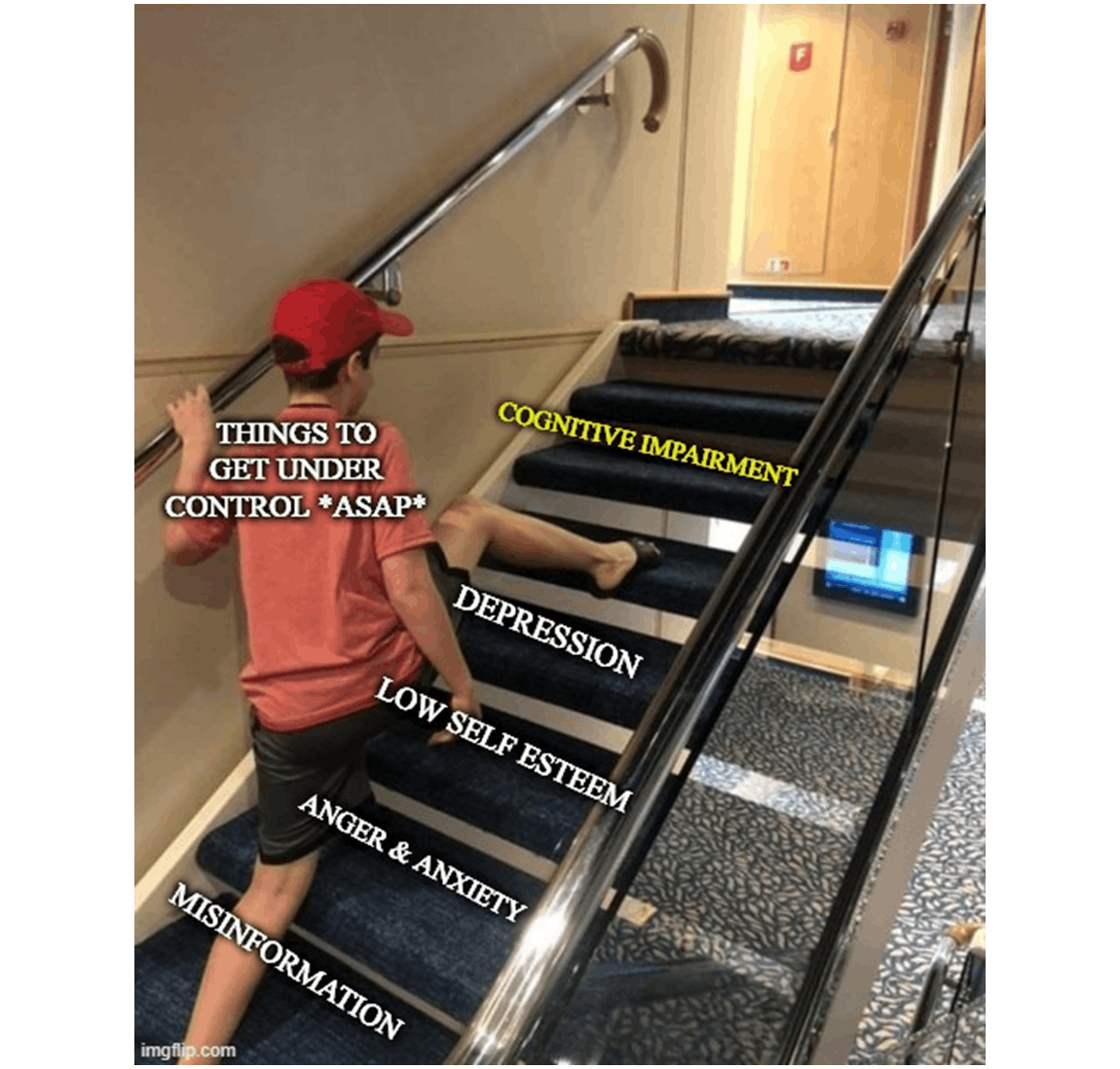
Let’s unpack what Cognitive Impairment means:
- The level of social media use on a given day is linked to a significant correlated increase in memory failure the next day. Source
- The mere presence of your smartphone, even when it’s turned off and face down, drains your attention. Source
- 3 months after starting to use a smartphone, users experience a significant decrease in mental arithmetic scores (indicating reduced attentional capacity) and a significant increase in social conformity. Source
- Most Americans spend 1 hour per day just dealing with distractions and trying to get back on track — that’s 5 wasted full weeks a year! Source
- Several dozen research studies indicate that higher levels of switching between different media channels is significantly linked to lower levels of both working memory and long-term memory. Source
- Studies even showed that people who opened Facebook frequently and stayed on Facebook longer tended to have reduced gray matter volume in the brain. Source
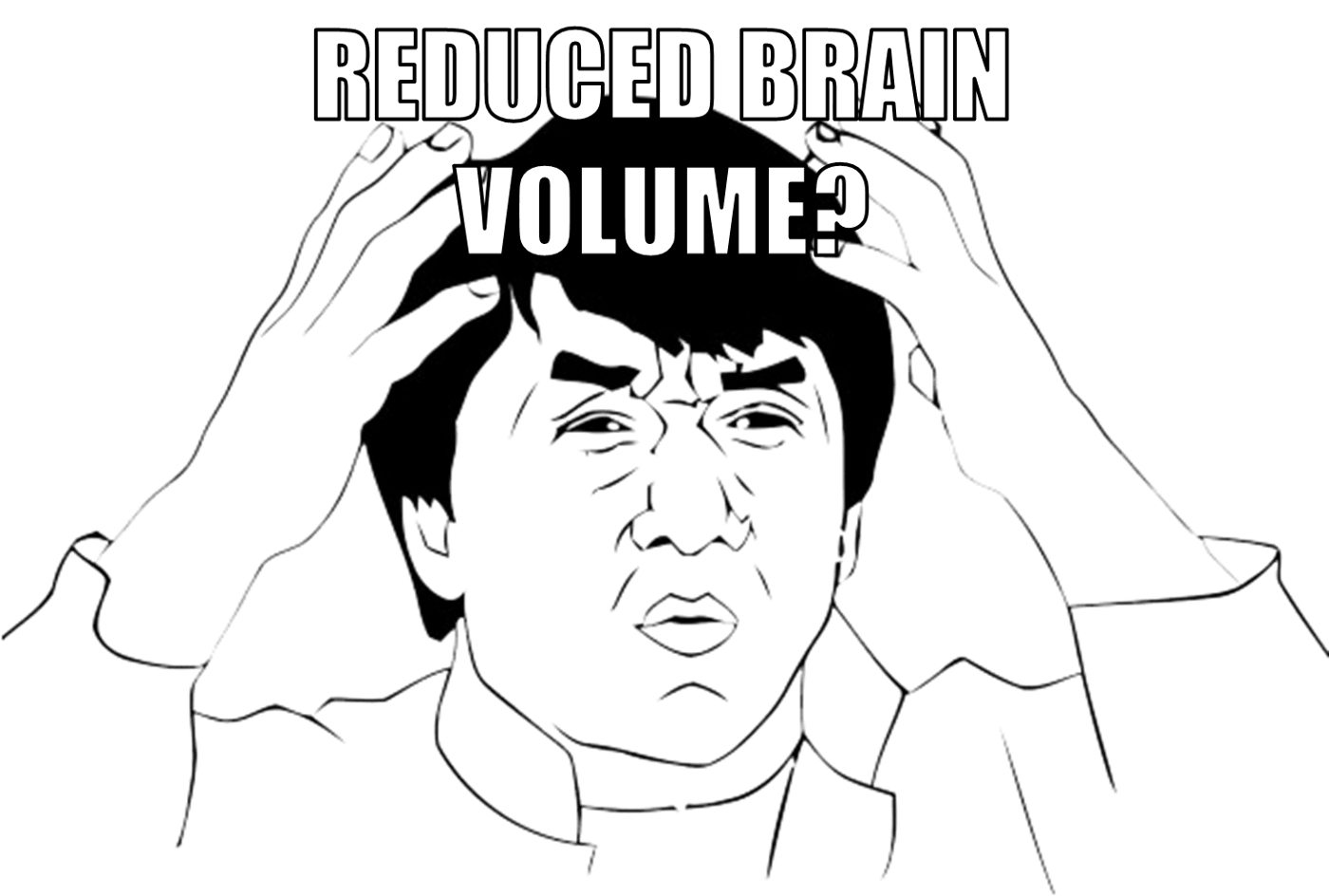
So in addition to making us increasingly more neurotic, isolated, lonely, anxious and depressed — screen and social media addiction physically melts our brains and makes us dumber.

Mirror mirror on the wall what’s the worst finding of them all? 75% of screen content is viewed for less than 1 minute and most people switch to new content every 19 seconds — all because we experience a neurological “high” whenever we switch. This is why we feel driven to keep switching and wind up being manipulated by attention-extractive economies. Source
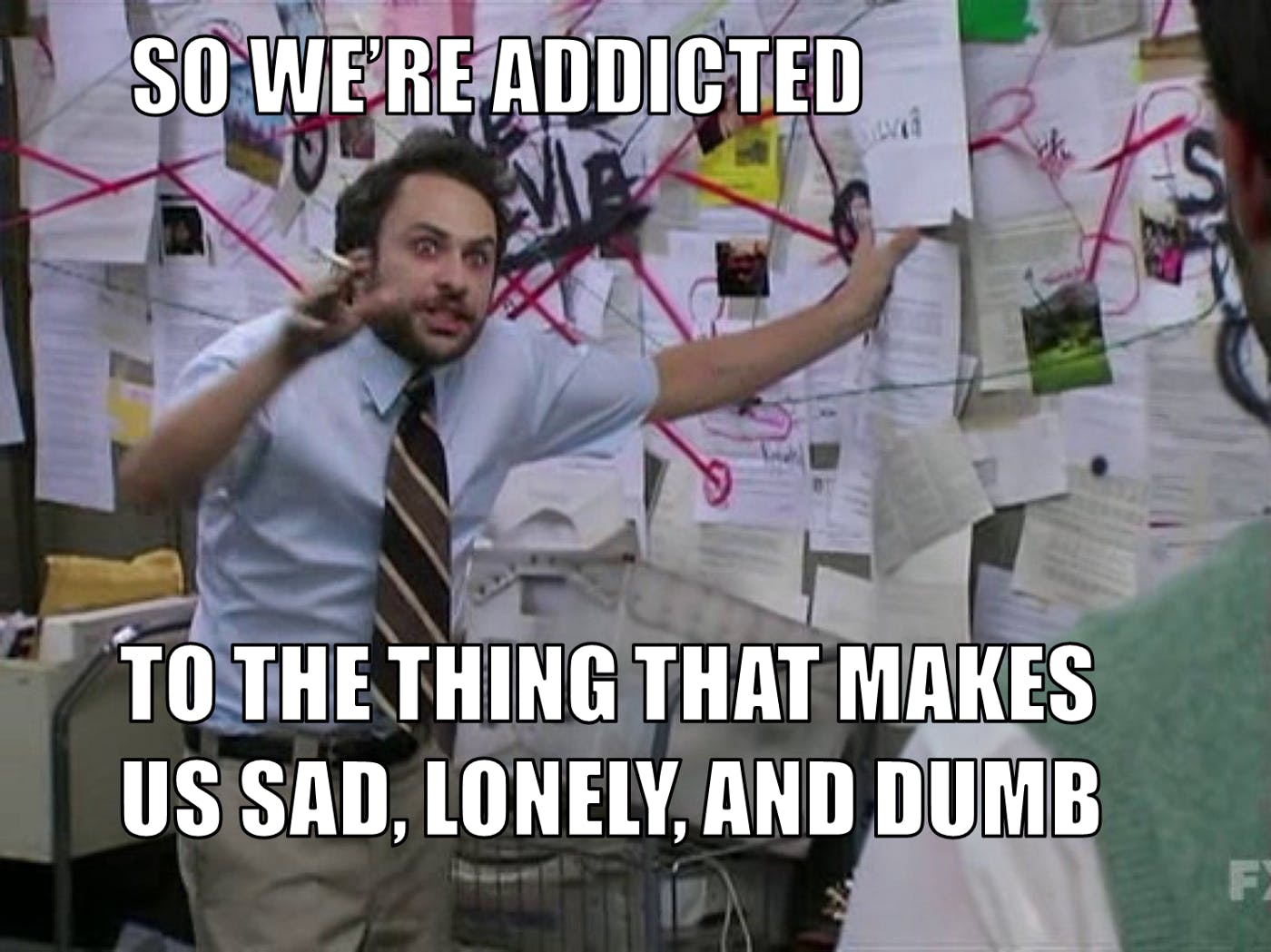

It’s a positive feedback loop. The world’s brightest minds at Meta, TikTok, Snap and other tech companies work hard to unlock the power of algorithms and short-form videos to make digital products more & more addictive. The better the tech they create, the shorter our attention spans get. The shorter our attention spans get, the more time we spend dwelling & switching on screens to get our dopamine hits — the addiction gets stronger.
This addiction loop is exactly why this post was written with memes: without them lighting up your dopamine receptors, your compromised attention span would never let you get this far.
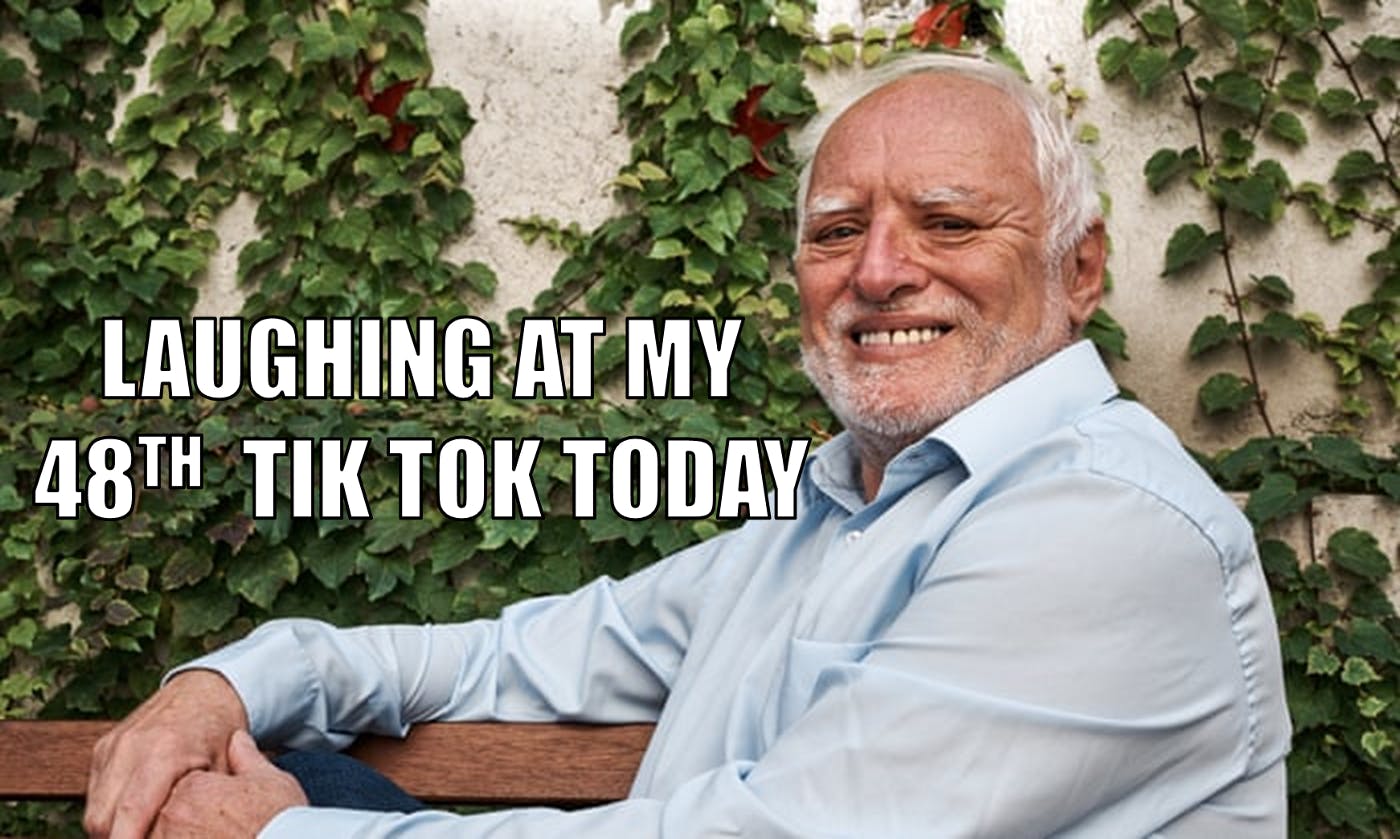

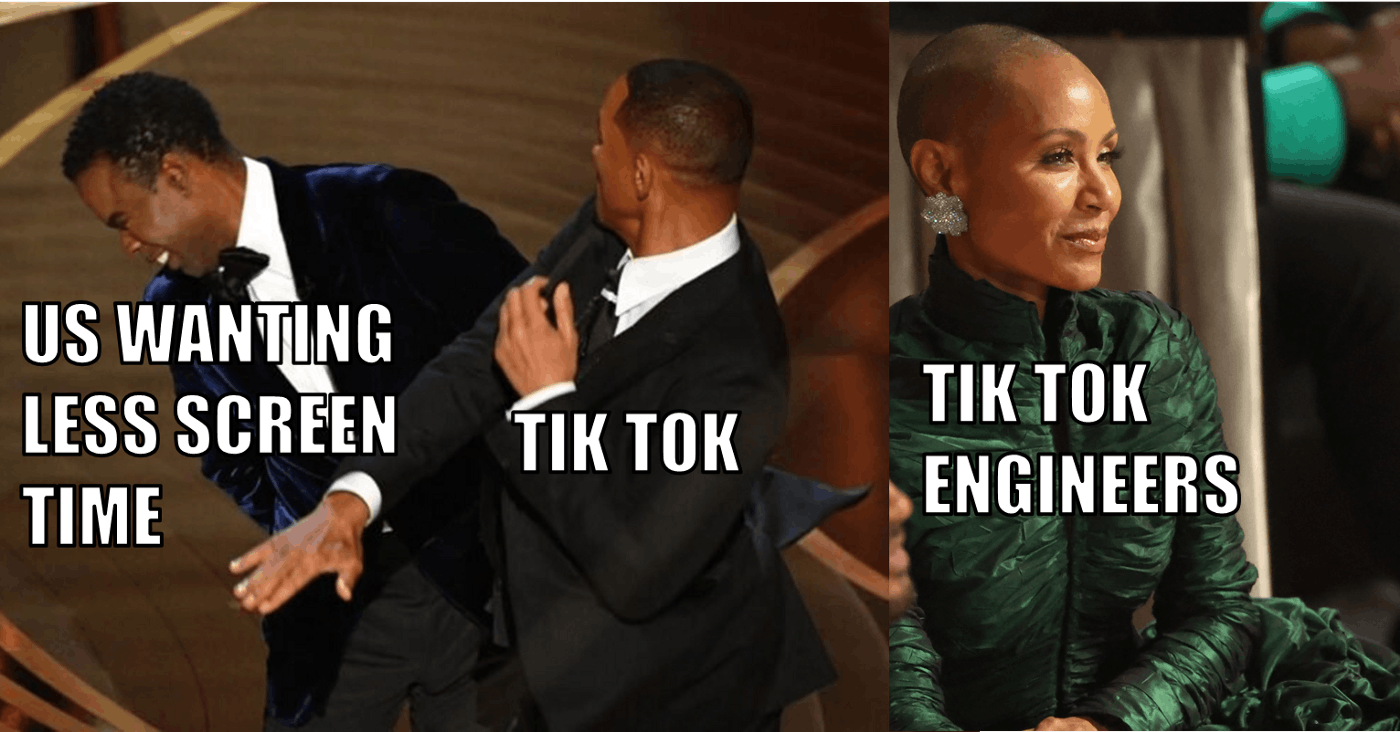
Too soon?


There’s another major compounding factor that showed up big during the pandemic: the more time we spend on our phones, the less time we spend engaging with the one thing that can set us free — the real world.
Because most screen time happens at home, staying in doesn’t give our brain an opportunity to recover. The more time we spend at home (thus on screens), the less interested we become in leaving home, so we tend to stay in and soak up the screen time. The effects quickly accumulate and the positive addiction loop gets even stronger.
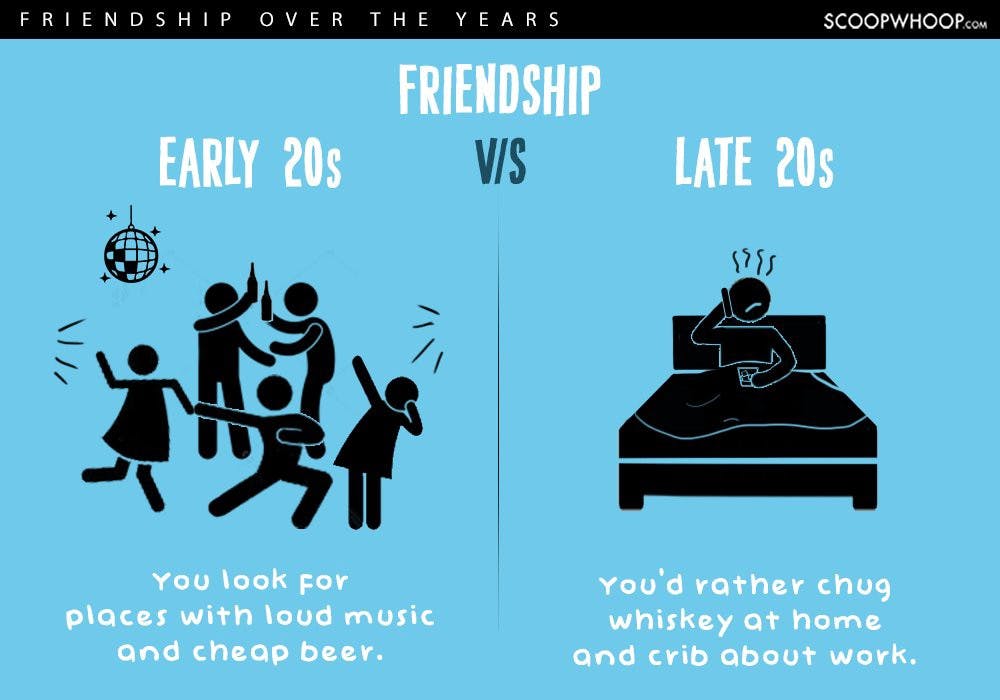
THIS ISN'T A MEME!
Look familiar? That’s not just your age or introversion at work — it’s your phone screen. The reason we often wind up staying in on Saturday nights is our subconscious desire to feed our addiction. The phone screen is exactly where you’ll wind up when you forego going out and socializing — you may not realize it, but your brain certainly does.

After a while, many of us grow so accustomed to being at home that it becomes hard to reverse course. In fact, the only way to get us off our couches would feel a lot like this:

Someone physically dragging us off couches out into the real world. In 1990, that was your friend showing up at your door. In 2022, that almost never happens. We stay stuck.
So let’s summarize:
Screen & social media addictions have taken hold while we barely noticed. Now, we suffer from anxiety, loneliness, depression and cognitive impairment. Cognitive impairment in turn amplifies the addiction and its negative effects.
Additionally, spending time on screens prevents us from recovering via real-life socialization. It causes us to favor spending time at home because home is where we are glued to our phones, further reinforcing the addiction loop.
Are we screwed? Are we destined for severe brain erosion portrayed in the cult hit Idiocracy? Maybe, but maybe there is hope. There are THREE ways to fight the brain drain.

1. Encourage tech companies to make less addictive products

While I absolutely love what the folks at the Center for Humane Technology do with the next generation of product builders, I’m not going to hold my breath.
2. Take deliberate, conscious actions to limit screen time.
Not only does this make a lot of sense — it’s a must do. There’s only one problem: it’s very hard to sustain. The reason is cognitive dissonance: we like spending time on our phone screens and constantly have to battle with ourselves for control. Was less screen time one of your New Years resolutions? How is that going today?


3. Use tech platforms that weaponize FOMO to pull us off screens & couches and out into the real world.
Not all tech is bad. The right platforms will probably look like Citizen for fun or even Pokemon Go for real life. If designed correctly, they’ll get us off our couches because they’ll feel a whole lot like this:

The irony is that while it’s tech that harms us, it’s also tech that has the best chance of helping us return to the socialization, exploration, and adventure we need most in this day and age.
The end.
P.S. if this post spoke to you, delete stuff off your phone now, spend more time with friends & loved ones, and share this with people you care about.

This story was originally published on Medium.
Comments (19)
Tim Smits@smiiits

Unpluq
I totally agree, however deleting is often not the right way as you would want access to those apps sometimes. That's why we've created Unpluq It will help you to make a more conscious choice before accessing distracting apps. We are saving our users more then 1 hours of screen time everyday!
Share
What a brilliantly engaging post! Let me go share this on insta, twitter, linkedin and FB :D
Gamma
The memes were a smart move.... very impressive.
Another solution - download the apps for communication (ex whatsapp) to your computer and switch off the phone.

Integromat
So great! Would love resources to help one's partner with smartphone addiction.
@irhymeth You could check out Unpluq, it's a product we've developed because we suffered from digital distraction ourselves. Our app helps you to make a more conscious choice before accessing distractions apps (www.unpluq.com)

Focus Bear
@irhymeth @smiiits nice one. I like the physical tag. How do you stop people uninstalling the app or disabling overlay permissions? Also what about iOS? I'm working on something similar (focusbear.io) and haven't figured out a solution for iOS apart from sending annoying push notifications if the focus bear app isn't open in the foreground when a user initiates a focus block on their computer. It seems easy to deactivate screen overlays on Android but maybe the app can play an annoying sound if you disable that.
More stories

Mathew Hardy · How To · 3 min read
How to Detect AI Content with Keystroke Tracking

Sanjana Friedman · Opinions · 9 min read
The Case for Supabase

Vaibhav Gupta · Opinions · 10 min read
3.5 Years, 12 Hard Pivots, Still Not Dead
Kyle Corbitt · How To · 5 min read
A Founder’s Guide to AI Fine-Tuning

Chris Bakke · How To · 6 min read
A Better Way to Get Your First 10 B2B Customers
